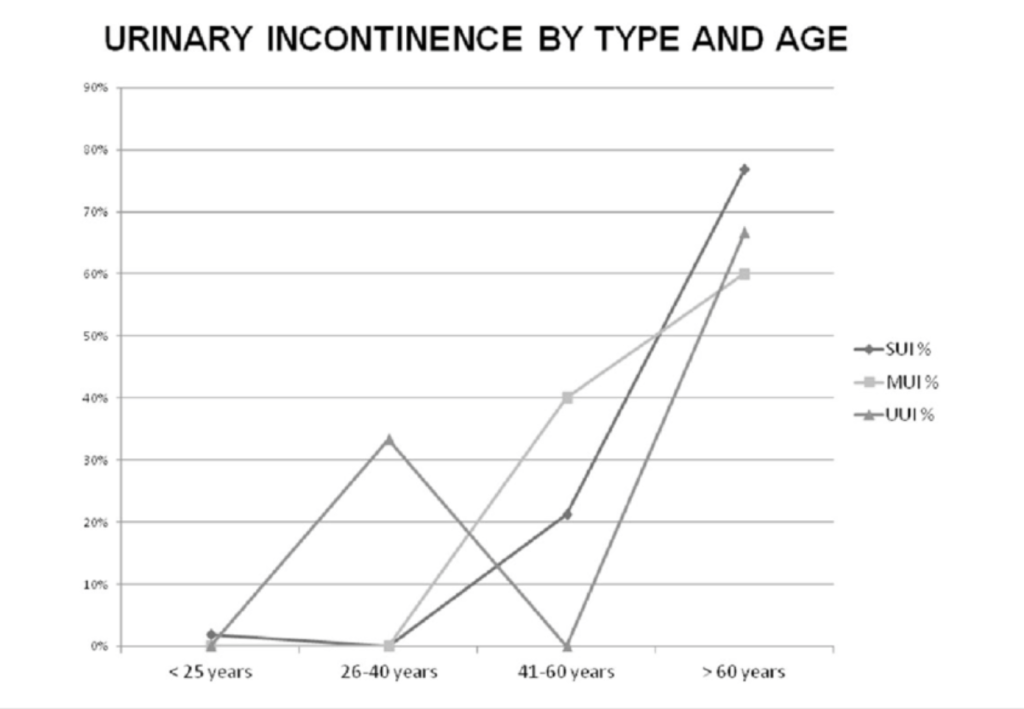Bladder leakage, overactive bladder, and bowel incontinence are no fun. The symptoms are disruptive and embarrassing, but they are also progressive, meaning they get worse with time. What may start as a nuisance progresses to an expensive series of trips to different doctors, and even more expensive trips to Costco for pads and diapers. Here’s what to understand about the progressive nature of incontinence.
The Escalation of Incontinence
This is a graph from a publication by Fernandez-Cuadros that shows the escalation of bladder leakage with age. There is no question that it doesn’t worsen with time.

And yet, incontinence is a condition with great treatments. The simple truth is that you do not have to live with it and curtail your life anymore. And that’s a relatively new reality.
Thirty years ago, the only options were ineffective medications and invasive (and also surprisingly ineffective) surgery. But today, for both mild and severe cases of incontinence, the landscape has entirely changed due to a simple therapy based on a sophisticated technology.
At early stages, pelvic floor exercise therapy and medication may help. But as we age, the condition tends to progress, which means more effective treatment is soon needed.
The Most Effective Treatment
Sacral neuromodulation effectively treats overactive bladder, urinary incontinence, and bowel incontinence with a painless, 25-minute outpatient procedure. Like a pacemaker, the small, thin device is placed under the skin using local anesthetic, and, after a bit of nifty computer programming, it begins to work its magic, restoring the complex interactions of the pelvic floor muscles and nerves to restore control and proper bladder function once and for all.
At the Continence Center, we offer a comprehensive pelvic floor therapy exercise program, medications, and sacral neuromodulation as cornerstone therapy with a very high rate of success. Regardless of where you or your loved one is in the progression of this condition, don’t let it rule your life and dictate your calendar and movements. The treatment has never been easier, simpler, safer, or more painless.
Learn more about whether you might be a candidate for sacral neuromodulation or contact us today to get started.




